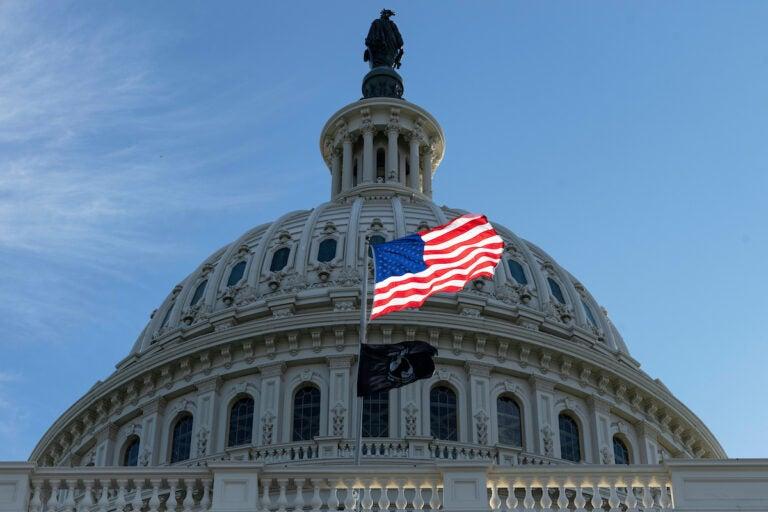A prolonged government shutdown could have far-reaching impacts on travelers across the United States, disrupting flights, national park access, and essential travel services. As federal agencies face funding gaps, key operations tied to transportation security, airport staffing, and public lands management risk significant slowdowns or closures. This article explores how ongoing political impasses may complicate travel plans for millions, highlighting what travelers need to know to navigate potential disruptions amid an extended shutdown.
Impact on National Parks and Monuments Access During a Shutdown
During an extended government shutdown, visitors should brace for significant changes in accessing national parks and monuments. Many facilities, including visitor centers, campgrounds, and restrooms, may close entirely due to lack of funding and staffing. While some parks remain technically “open,” the absence of essential services often means limited access to trails, unsafe conditions, and no emergency support. Travelers relying on these destinations for recreation or cultural experiences will likely face disruptions and should plan accordingly.
Key impacts to consider:
- Closure of ranger-led programs and guided tours
- Suspension of maintenance, leading to deteriorating trails and facilities
- Limited or no trash removal, affecting cleanliness and safety
- Parking areas and entry stations may be unmanned or locked
| Park Type | Expected Status | Visitor Facilities |
|---|---|---|
| Popular National Parks | Restricted Access | Visitor centers closed, limited restrooms |
| National Monuments | Open but Unstaffed | No ranger services, minimal maintenance |
| Less Visited Areas | Closed | Entirely inaccessible, locked gates |
Disruptions to Airport Security and Air Travel Operations
A prolonged government shutdown would lead to significant interruptions in airport security procedures nationwide. Essential personnel such as TSA agents may face furloughs or reduced hours, resulting in longer screening lines and intensified checkpoint delays. Passengers could experience heightened uncertainty as understaffed airports struggle to maintain the usual flow of operations, increasing the risk of missed flights and travel disruptions, especially during peak holiday periods.
Beyond security checkpoints, other critical facets of air travel operations would be affected. Air traffic controllers, while typically required to work without immediate pay during shutdowns, might experience increased stress and fatigue, potentially impacting flight schedules. Airlines themselves may need to adjust their timetables or cancel less profitable routes due to resource constraints. The table below outlines potential operational impacts travelers might encounter:
| Affected Area | Possible Effects |
|---|---|
| Security Screening | Extended wait times, fewer TSA agents |
| Air Traffic Control | Increased workload, potential scheduling issues |
| Flight Scheduling | Possible cancellations/delays, adjusted routes |
| Customer Service | Reduced staffing, slower response times |
Delays and Cancellations Affecting Federal Transportation Services
Travelers can expect significant disruptions across federal transportation services amid a prolonged government shutdown. Agencies such as the Federal Aviation Administration (FAA) and Amtrak may operate with limited staff, leading to delays and cancellations that could ripple through the entire travel network. Flight schedules are particularly vulnerable, with last-minute changes becoming common as air traffic controllers work under reduced capacity. Meanwhile, maintenance delays on trains and federal highways may pose additional challenges, with routine inspections postponed or stretched thin.
To better understand the scale of these interruptions, hereŌĆÖs a quick overview of potential impacts:
- Flight delays: Average waiting times may increase by 30% or more during peak travel hours.
- Train cancellations: Up to 20% of daily Amtrak routes could be affected, especially in long-distance corridors.
- Security checks: TSA staffing shortages may slow down passenger processing, increasing time spent in lines.
| Service | Expected Impact | Estimated Delay/Cancellation Rate |
|---|---|---|
| Domestic Flights | Reduced air traffic controller availability | 25-35% |
| Amtrak Routes | Staffing shortages impacting long-distance service | 15-20% |
| TSA Security | Longer passenger screening times | Increased wait times by 20-40 mins |
Tips for Travelers to Navigate Uncertainty Amid Government Closures
When government closures extend unexpectedly, travelers face a ripple effect of disruptions that can upend carefully crafted itineraries. Delays and cancellations of key public servicesŌĆöincluding airport security, national parks, and visa processingŌĆödemand a flexible mindset and proactive communication with airlines and service providers. Staying informed through official channels and leveraging travel apps that offer real-time updates can be crucial in avoiding last-minute surprises.
To navigate these challenges with greater ease, consider these essential strategies:
- Verify travel documents: Double-check passport and visa requirements, as consular services might be limited.
- Book refundable options: Prioritize flexible tickets and accommodations to accommodate sudden changes.
- Prepare alternative routes: Have backup airport or transport choices in case primary hubs are affected.
- Maintain an emergency fund: Unexpected expenses can arise, especially from last-minute changes.
- Keep digital and physical copies: Store important documents in multiple formats to avoid accessibility issues.
| Service Affected | Impact | Recommended Action |
|---|---|---|
| Airport Security | Delays & Reduced Staffing | Arrive Early, Monitor Status |
| National Parks | Closures & Limited Access | Check Online for Updates |
| Visa Services | Processing Slowdowns | Apply in Advance, Verify Status |
| Public Transportation | Disruptions & Reduced Schedules | Research Alternatives |
Insights and Conclusions
As the possibility of a prolonged government shutdown looms, travelers are advised to stay informed and prepare for potential disruptions. From delayed TSA screenings to reduced services at national parks and airports, the ripple effects could significantly impact both domestic and international travel plans. Staying updated through official channels and considering flexible booking options will be crucial in navigating the uncertainties ahead. For the latest developments and detailed guidance, continue to follow PBS and other trusted news sources.







